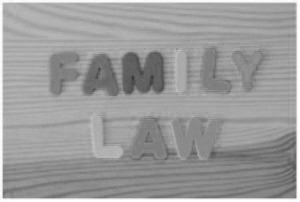
Independent Children’s Lawyers Representing Children In The Family Court
Blog post by Genevieve Smit
In the context of Family Court proceedings, the pressure on children to ‘pick a side’ in their parents’ disagreement can often be heightened. As a result, it may be appropriate for children to be provided with the opportunity to express their views in circumstances that are free from the influence of others. Independent Children’s Lawyers Representing Children In The Family Court (ICL’s) are lawyers who are appointed to represent children in parenting proceedings.
Essentially, the ICL’s role is to determine what is in the child’s best interests, taking into account all the relevant facts and circumstances of the particular case.
ICLs are appointed for the purpose of representing children and, as a result, they need to remain independent of all the other parties to the relevant proceedings. They also need to establish a professional relationship of trust and respect with the child.
How are ICLs appointed?
The Family Court may appoint an ICL where it considers the relevant child’s best interests need to be represented independently of his or her parents (or other parties involved in the proceedings).
ICLs can be appointed by the Family Court, or subject to an application from the child, a child welfare organisation, or any other person.
When are ICLs appointed?
ICLs may be appointed in various circumstances, including (but not limited to) where:
- There are allegations of child abuse.
- There is a high level of conflict between the child’s parents.
- Cultural or religious differences between the child’s parents are affecting the resolution of parenting issues.
- It may not be appropriate for the child’s parents to have parental responsibility for the child.
- The parents (or other person(s) concerned with the care and welfare of the child) engage in conduct that may negatively impact the child.
- A child’s parents disagree regarding medical treatment a child should receive.
ICL’s role in proceedings
As mentioned previously, Independent Children’s Lawyers Representing Children In The Family Court have their best interests in mind.
The ICL will determine what is in a child’s best interests with reference to the particular facts and circumstances of the particular case, and may, in some situations, seek orders that are contrary to the child’s wishes on the basis that they better serve the child’s best interests.
Removing ICLs
Independent Children’s Lawyers will only be removed from proceedings in limited circumstances including:
- Where the ICL fails to represent and act in the child’s best interests; or
- Where a conflict of interest arises.
Contact the family lawyers at Culshaw Miller in Perth today for more information.
Perth: (08) 9488 1300 or email.

Commercial Litigation Time Limits For Debts Repayable On Demand
Blog post by Tim Retallack
A recent WA Supreme Court decision provides a reminder relating to Commercial Litigation Time Limits For Debts Repayable On Demand.
In the case of Blenkinsop v Blenkinsop Nominees Pty Ltd [2015] WASC 254 (delivered 20 July 2015), the Court gave the defendant leave to defend a claim for repayment of loans that had been made in 1986 and 1988 respectively – the potentially available defence being that because no time for repayment had been specified, the common law implied that the loans were repayable immediately upon being advanced (Central City Pty Ltd v Montevento Holdings Pty Ltd [2011] WASCA 5).
In those circumstances, the plaintiff’s cause of action would have accrued more than 6 years prior to commencement of the claim, and would be time-barred by virtue of section 38 of the Limitation Act 1935 (WA).
Interestingly, the judge noted that under the provisions of the Limitation Act 2005 (WA), a different position would apply, because under section 59 of that Act, a cause of action for the repayment of debt repayable on demand accrues when there is a failure to comply with a demand for repayment. There are no equivalent provisions in the 1935 Act, which applies if the cause of action accrues prior to commencement of the 2005 Act.
Commercial Litigation Time Limits For Debts Repayable On Demand was a point of interest when confirmation that (even under the 1935 Act) an old debt can be ‘revived’ and recovered within six years of a written acknowledgement of the debt by the debtor (section 44, Limitation Act 1935), and further that such written acknowledgement can be constituted by more than one document, and could include acknowledgement in financial statements (including a balance sheet) where they have been received by the creditor who sues in reliance on them (Stage Club Ltd v Millers Hotels Pty Ltd [1981] HCA 71).
The case provides a useful reminder of some of the technical issues that can impact upon a debt recovery action.
If you have any questions about debt recovery, or commercial litigation, contact Tim Retallack or Charles Clifton.
Contact the family lawyers at Culshaw Miller in Perth or Adelaide today for more information.
Perth: (08) 9488 1300 or email
Adelaide: (08) 8464 0033 or email

Five Myths About Wills And Estates
Blog post by Michaela Speering and Sarah Nicholls
Five Myths About Wills And Estates
I am married/in a de facto relationship so my estate will automatically pass to my spouse/partner
Five Myths About Wills And Estates, one is if you hold assets in your sole name, and you die without a Will, your assets will be determined by law not go directly to your spouse. In Western Australia, the Administration Act sets out who will receive your estate. Your spouse or partner will receive a share, but will not automatically receive everything. It is more complicated if you leave children under the age of 18. If your spouse/partner claims all of the estate, they will need a Supreme Court order if it impacts on the entitlements of children under 18 – even if they are also your spouse/partner’s children. This can be devastating for the surviving family members and expensive to resolve.
I don’t have any assets so I don’t need a Will
This is often the view of young adults. You may not have a house or a business, but if you have personal items, a car, superannuation and life insurance your estate might hold a higher value than you think. You can choose through your Will how you want those assets to be distributed and the process of administering an estate is easier with an Executor appointed in a Will.
My superannuation is an asset of my estate
Superannuation is not treated in the same way as your other assets. It is the trustee of the superannuation fund who decides how those death benefits should be paid. There are different tax consequences for different beneficiaries so it is important to seek proper advice.
My partner and I own our house as joint tenants but I want to leave my half share to my adult children
You can’t do this. Property held by two or more people as joint tenants automatically passes to the surviving joint tenant/s. This also extends to shares, bank accounts, investments and other items which may are held jointly. These assets will not pass into your estate and cannot be distributed by your Will.
It’s too expensive – and I won’t be around to worry about it
The cost of a professionally drawn Will is significantly less than the legal costs involved in administering an estate where a person has died without a valid Will. If you have no Will or you have an informal Will you may be exposing your family to a complex and expensive legal exercise to administer your estate.
Contact Michaela Speering for more information about Wills & Estate Planning.

Attachment Orders can be an appropriate garnish for Debt Recovery
Attachment Orders can be an appropriate garnish for Debt Recovery which allows a judgment creditor to recover a debt by taking payment of money that is owed to the judgment debtor by a third party.
Since 2005, the provisions of the WA Supreme Court Act and Rules which previously applied to garnishee or attachment orders have been replaced by provisions in the Civil Judgments Enforcement Act 2004 – Division 5 – which define a category of available debts, and establish the administrative framework for obtaining execution of a judgment by way of Debt Appropriation Order.
Availability of these processes requires knowledge of what debts might be owed to an opposing party, and that knowledge is not always readily available.
In practice, garnishee orders are most commonly obtained by the ATO, and other similarly sophisticated institutional debt recovery agencies, rather than by private litigants.
Culshaw Miller Lawyers recently obtained a Debt Appropriation Order for a private litigant in the WA Supreme Court.
As co-owner of shares in a private company, the client became aware that the judgment debtor (a former business partner) was about to receive a substantial payment by way of return of capital, and within 24 hours of Culshaw Miller being instructed, a Debt Appropriation Order was obtained on an urgent basis requiring that the company pay that money to the client, rather than the opponent.
Interestingly, not only was this the first Supreme Court Debt Appropriation Order that Culshaw Miller have obtained for a client, it was also the first time that the Acting Principal Registrar of the Court had seen such an application!
If you have any queries regarding Debt Recovery actions, or Debt Appropriation Orders, contact Tim Retallack or Charles Clifton of Culshaw Miller Lawyers.

Land Contract Disputes – Ye Olde Requirements For Writing Have Byte In A Digital World
When Captain James Stirling established the Swan River Colony at Perth in 1829, he brought with him as ‘received law’ all of the general statutes of England that were in force at that time. But with Land Contract Disputes – Ye Olde Requirements For Writing Have Byte In A Digital World.
Only a few of those provisions still survive, but one is section 4 of the Statute of Frauds 1677 which, for 186 years has had the effect of requiring that for certain types of contract to be legally enforceable in Western Australia, they have to be recorded in writing and signed by the person to be bound.
Similar requirements for writing and signature are also found in section 4 of the Sale of Goods Act 1893, and section 34 of the Property Law Act 1969.
These days, the most important practical application of these formal requirements is in relation to contracts (or alleged contracts) involving dealings with interests in land.
Modern Law
In 2011, the WA Parliament modernised the definition of what would be an acceptable legal form when it enacted the Electronic Transactions Act 2011.
In substance, section 10 of that Act provides that if a WA law has a requirement for the signature of a person, then that requirement will be met in relation to an electronic communication if:
- (a) A method is used to identify the person, and to indicate the person’s intention in relation to the information communicated; and
- (b) The method used is sufficiently reliable having regard to the circumstances of the communication (or the method is proven as a matter of fact to have complied with the requirements of paragraph (a)); and
- (c) The person to whom the signature is required to be given consents to the requirement being satisfied by the use of the method described in paragraph (a)).
Old Law in a Modern World – a Case Study
In a recent WA Supreme Court decision (Claremont 24-7 Pty Ltd v Invox Pty Ltd [2015] WASC 220 – delivered 17 June 2015), it was held that section 10 of the Electronic Transactions Act applied to the Statute of Frauds and Property Law Act requirements for writing and signature in relation to contracts involving interests in land.
Importantly, the Judge found that an email sent by a director of a land owning company indicating acceptance of terms to be included in a formal offer to lease was sufficient to bind the company to an agreement to enter a lease on the terms offered.
This outcome was no doubt an unpleasant surprise for the director who, in the absence of a formal written offer being signed, had gone on to separately negotiate and conclude a formal lease with another party.
In the result, the Court found that both agreements were enforceable, and the landowner company suddenly had a damages problem!
Land Contract Disputes – Ye Olde Requirements For Writing Have Byte In A Digital World.
Land contract disputes can be complicated, and a bad result can be expensive.
If you have a land contract dispute, or want some advice to help avoid one, contact Tim Retallack or Charles Clifton (Litigation) or Marcus Easthope or Christian Hofferberth (Property) at Culshaw Miller Layers in Perth or Adelaide today for more information.
Perth: (08) 9488 1300 or email
Adelaide: (08) 8464 0033 or email

Why It Matters To Have A Valid Will
Death is not a subject that is easy or pleasant to think about, but, along with taxes, it is one of life’s certainties. Which is why it matters to have a valid Will.
Everyone has heard a story from their relatives, friends or co-workers where a family became involved in a bitter dispute over a deceased estate. Why are these disputes so common?
There are many misconceptions about how estates are administered when a person dies without a Will.
It pays to be prepared in your estate planning – by obtaining proper advice and making informed decisions. Things become a lot more complicated if you die intestate (without a Will). In Western Australia, intestate estates are governed by the Administration Act 1903.
What will happen to your estate?
Below are four common examples of the way the Administration Act determines who receives a share of an intestate estate in Western Australia.
Married or in a de facto relationship with children?
Your spouse receives the first $50,000 and one third of the rest of your estate. Then the other two thirds are divided equally between your children.
At first glance, that might sound like a fair outcome, but if your house is in your name and you have children under the age of 18, your spouse may have to apply to the Supreme Court to obtain an order to enable the house to pass to him or her.
Married or in a de facto relationship with no children?
Your spouse receives the first $75,000 and one half of the rest of your estate. Therefore the other half will be divided in set percentages between your surviving parents and siblings. However if your siblings have predeceased you, as a result their children have an interest as well.
Being married does not mean that your spouse automatically receives your estate. If you are in a de facto relationship, you have to prove the relationship existed for at least 2 years.
Single with children?
Your estate will be divided equally between your surviving children, they receive their shares of your estate at the age of 18 years. therefore will be entitled to receive assets from your estate with no restrictions. However a properly drafted Will can ensure that a child’s inheritance is managed on the child’s behalf, so that it can be protected and invested until the child is older.
No children or dependants?
This is Why It Matters To Have A Valid Will
Your estate will be divided between your parents and siblings, or your nieces and nephews if your siblings predeceased you. Who are the beneficiaries that you want to provide. Are there any family members that you want to leave out?
Homemade Wills can cause all sorts of problems. A professionally drawn Will, will make the administration of your estate an easier process for those left behind.
Contact Michaela Speering for more information about Wills & Estate Planning at Culshaw Miller in Perth or Adelaide today for more information.
Perth: (08) 9488 1300 or email
Adelaide: (08) 8464 0033 or email
Blog post by Michaela Speering and Sarah Nicholls

The importance of using the correct language in a Will
A recent decision of the New South Wales Court of Appeal highlights the importance of using the correct language in a Will as well as the importance of Executors acting ‘reasonably’ in disputed estate litigation.
In Warton v Yeo [2015] NSWCA 115, the late Mr Justin Callaghan left a Will appointing Mr Yeo as the Executor. By his Will, the deceased left a quarter of his estate to his sister, Mrs Ailsa Lamond, and if she died before him, her share was to pass ‘to such one of her children as shall survive me and if more than one in equal shares’.
Mrs Lamond died before the deceased. A dispute arose between the Executor and the deceased’s family about the meaning of the word ‘children’ in the Will. Mrs Lamond had only one biological child, but she had four stepchildren whom she had brought up as her own children.
The deceased was close to his sister and was aware of her family circumstances. The question for the Court was whether he intended to leave that share to one child, or five. Two of Mrs Lamond’s stepchildren filed a claim against the Executor and asked the Court to rule on the meaning of the word ‘children’ in the Will. Mrs Lamond’s natural child agreed to abide by the decision of the Court.
The Executor had prepared the Will and took an active role in the Court proceedings, arguing that the deceased had clearly meant that part of his estate pass to Mrs Lamond’s biological child.
The Judge at the first Court hearing agreed with the Executor and found that the word ‘children’ included only Mrs Lamond’s biological child.
The stepchildren appealed. The Court of Appeal found that the deceased, knowing his sister’s family, had intended to benefit Mrs Lamond’s biological child and the step-children by including the word ‘children’ in the Will.
The second issue in this case was the action of the Executor in actively defending the claim by the step-children. The Court found that the Executor had acted unreasonably in incurring costs.
In most disputes the whole of an Executor’s costs will be paid out of the estate. The Court rejected the Executor’s application for indemnity costs.
The two critical lessons to be learned from this case – make sure your Will fits your circumstances and your family’s circumstances.
A warning to Executors – an Executor who acts unreasonably is not guaranteed to have their costs paid from the estate.
Contact Michaela Speering for more information about Wills & Estate Planning at Culshaw Miller in Perth or Adelaide today for more information.
Perth: (08) 9488 1300 or email
Adelaide: (08) 8464 0033 or email
Blog post by Michaela Speering and Sarah Nicholls

Is There Such A Thing As Spousal Privilege In Australia?
Is There Such A Thing As Spousal Privilege In Australia? In 2011, the High Court of Australia determined by a majority that there was no recognition of a right of spousal privilege at common law in Australia.
In Australian Crime and Corruption Commission v Stoddart, the wife of an accountant was compelled by summons to appear before the Federal Court in order to provide evidence of her knowledge of the husband’s preparation of certain tax documents. The wife claimed privilege in the conversations she had with her husband under a general principle of common law. The issue was remitted to a higher court for determination.
The Full Court of the Federal Court determined that the privilege did exist at common law and the Act under which the husband was charged did not cancel out the privilege.
The ACC appealed to the High Court. The High Court by a 5-1 Majority determined that there was not a generally accepted principle at common law of spousal privilege. Justice Heydon gave a dissenting judgement.
So is there such a thing as spousal privilege in Australia?
The majority determined that as there was not a generally accepted substantive rule regarding spousal privilege but it was important to explain where the concept had arisen.
Competence, Culpability and Privilege
Competence is the concept that you are able to properly give evidence.
Culpability is a determination of whether you should be legally compelled to answer questions.
These issues usually arise before a witness provides evidence or when evidence is being taken.
These concepts attach to the qualifications and personal experience of the person.
Privilege is attached to evidence. Privilege is a right. Privilege can be waived, or enforced. A common example is the legal professional privilege that occurs in communication of Legal Advice between lawyer and client. The witness can therefore determine whether they wish to use the right of the privilege or to waive it.
The Court explained that there was generally a problem with the overlap of these concepts of competence, culpability and privilege and that ultimately the common law had never declared a substantive right to spousal privilege against inclination of the spouse.
It was noted by part of the majority however that a spouse may seek a ruling that they not be compelled to give evidence which might incriminate the other spouse.
Self-incrimination Generally
Section 128 certificates under the Commonwealth and Western Australian Evidence Acts allow a party to object to providing evidence where the party may incriminate themselves as to an offence against or arising under Australian or Foreign Law. The Court makes a determination as to whether there are reasonable grounds for providing a certificate protecting the person from incrimination. The Court may still compel the witness to give their evidence in the interests of justice.
Contact Daniel Sampson of Culshaw Miller Lawyers for more information about the status of spousal privilege in Australia.
Perth: (08) 9488 1300 or email
Adelaide: (08) 8464 0033 or email
Blog post by Daniel Sampson

Directors Duties: What Spouses Should Know
It is not uncommon for wives or husbands, or de facto partners to be appointed as a director of a corporation for taxation or other purposes. It is important that people being appointed as directors understand their rights and obligations. Directors Duties: What Spouses Should Know.
The Corporations Act 2001 (Cth) gives directors rights and places obligations with respect to companies.
Pursuant to the Corporations Act, company directors have a number of duties that they must comply with. Failure to comply with duties or to act diligently may result in having to pay compensation to the company.
The following are examples of rights and obligations that can be relevant in family law:
Insolvency and Liability
One of the foremost duties of directors is not to let their company trade insolvent. Upon the realisation that their company is trading insolvent, a director should take steps to ensure they do not continue to trade or otherwise appoint an administrator.
It is no defence for a director of a company that is trading insolvent to say that they were not involved and were a silent party, per Rema Industries and Services Pty Ltd v Coad & Ors (1992) 10 ACLC 530.
Of particular note is section 588G of the Corporations Act. 588G puts financial responsibility for losses on directors when a company is trading insolvent.
If a director realises that the company is trading insolvent, they should decide whether or not to stay on as a director and either resign or take steps to halt trade. Ignorance of the company finances is no excuse.
In the case of Ferraro and Ferraro (1992) 16 FamLR 1; (1992) 111 FLR 124, the Full Court of the Family Court, while not making a finding on the point, stated in obiter:
As it has been held that directors cannot absolve themselves from liability for insolvent trading by an assertion that they were merely a nominal director and took no part in the company’s affairs, this development in the law is particularly relevant to a wife who is only nominally a director of a company which conducts a family business. As the judgment of the Full Court in Morley notes “… the days of the sleeping, or passive, director are well and truly over.”
Access to Documents
Directors Duties: What spouses should know as a result directors also have rights of access to company documents in order to comply with their duties. This is a right that the director may action. It is up to the person denying access to show why a director should not have access to documents.
This may be helpful to a spouse director where a party is not allowing access to documents or is stalling or not compliant with their duties of disclosure under the Corporations Act.
For more information on directors duties and what spouses should know, please contact Daniel Sampson from Culshaw Miller Lawyers in Perth or Adelaide today for more information.
Perth: (08) 9488 1300 or email
Adelaide: (08) 8464 0033 or email
Blog post by Daniel Sampson

Help! My Ex Isn’t Complying With Parenting Orders – What Can I Do?
Blog post by Sarah Nicholls
All parties affected by a parenting order made by a court are expected to comply with the orders.
If your former partner is not complying with parenting orders, you may consider one of the following options:
- Attend family dispute resolution;
- Apply to the court; or
- Seek legal advice.
Family Dispute Resolution
Engaging in Family Dispute Resolution may assist you and your former partner resolve issues out of court. If an agreement is reached during this process, you may enter into a parenting plan or apply to the court to formalise your agreement by way of consent orders. If the registrar is satisfied that the orders sought by the parties are proper, it will make the parenting orders without the need to attend court.
Court
If you cannot reach an agreement with your former partner, you may consider applying to a court to vary the existing parenting orders or commencing contravention proceedings.
Varying the existing orders
Before you can apply to the court to vary the existing orders, you must attend Family Dispute Resolution if you have not done so in the past 12 months and obtain a certificate from a registered provider. There are some exceptions to this requirement, for example, if there is family violence, child abuse or some urgency.
It is important to understand that the court will only vary final parenting orders if it is shown that there has been a significant change of circumstances that make the change necessary.
Contravention proceedings
A contravention application is an application where a party can ask the court to remedy a breach of a court order.
The court will first determine whether or not there has been a breach of the orders. If the court finds that there has been a breach of the court orders and there is no reasonable excuse, it may impose a remedy. Depending on the nature and seriousness of the breach, the court may:
- vary the orders to reduce the chance of further breaches;
- give one party ‘make up’ time with their child or children;
- order a party to attend a parenting program;
- impose a community service order;
- order legal costs;
- impose a fine; or
- in the most serious of cases, order a sentence of imprisonment.
If your former partner is not following the court orders, it is important that you seek legal advice as to the best avenue to take. Please contact Sarah Nicholls of Culshaw Miller Lawyers to make an appointment.

